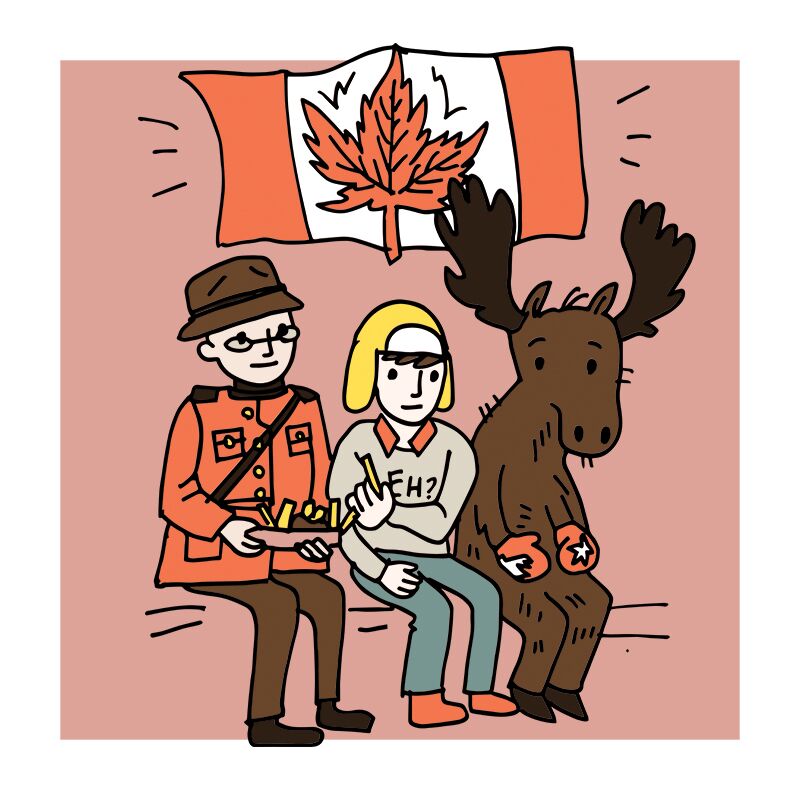A reflection on Canada’s national identity and why we should just be ourselves
The celebration of 150 years since Canada’s Confederation does not come without a few controversial questions. Amid the festivities, people from across the country have been denouncing the treatment of Indigenous peoples. As well, some people in Quebec—citizens and politicians alike—have reiterated the need for the province to be part of the constitution or to become a sovereign state.
While reconciliation and constitutional issues are of the utmost importance, I’d like to bring forward an aspect of Canada’s identity that’s often omitted. It’s an aspect that is crucial to what we’ve become in the century and a half since Confederation.
I’ve always been interested in the different political ideologies in Canada. It wasn’t until recently, though, that I realized there is a hidden one. One that pervades and homogenizes other ideologies so well that all lines are blurred, making us oblivious to it.
Indeed, I think there are not two but three main ideologies in today’s Canada: Quebec nationalism, Canada’s British roots and American exceptionalism. The latter proposes that the American economic system, political culture and democracy are uniquely rightful, thus making them the default model to follow. This ideology is certainly the most entrenched in our public discourse, as we see Canada becoming more similar to the United States.
American exceptionalism has positive and negative sides, depending on one’s position. For many Maritimers, the ideology is a denial of their deeply-rooted identity, while for some Québécois, it may reinforce republicanism and the sovereigntist sentiment, stemming from a shared sense of British oppression. But for both groups, it entails the takeover of their culture by mass consumption as sold by large media and corporations. That said, the Americanization of Canada likely serves neither Québécois nationalists nor Maritime loyalists.
The United States is currently walking down the road of isolationism and protectionism, a road that none of Canada’s identity groups are fond of. This is why I believe uniting to assert our right to political independence is the best thing we can do. In many ways, the current U.S. president has proven his values conflict with those of our country, and yet it is very difficult to stand up against our closest ally and neighbour.
Most of the time, when I ask someone what it means to be Canadian, the answer either has to do with multiculturalism or not being American. But to what extent is the latter true?
Our economies are integrated to the extent that we can’t foresee a future without a trade partnership with the United States. From NAFTA to Netflix, we are annexed now more than ever––the result of decades of neighbour-friendly policy making. I think this is concerning, given the political polarization in the United States and the looming threat of a war with North Korea. No matter how different we Canadians think we are, we may one day begin to see the downsides of such a close link with our southern neighbour.
I’m not here to tell anyone what kind of Canada they should strive for, nor am I here to lecture the United States. What I’m here for is to claim that we don’t have to be like Americans to be more favourable as a world power. We can make our own path, we can be ourselves and we can stand for what we want.
Our government should be more receptive to different identity groups in Canada than to the United States’s influence. It should take Canada for what it is: a politically and geographically complex place rather than an attempted replica of the United States. But the first step is for the population to read and learn about the past, and realize how Americanized Canada has become.
Graphic by ZeZe Le Lin





I’d like to get your point, but you give no examples to specify your ideas.
“sovereigntist sentiment, stemming from a shared sense of British oppression”. A shallow analysis. Adults know the deeper political implications, nobody cares about the British in this situation.
“the current US president has proven his values conflict with those of our country”. Whcih values? How? That’s a huge generalization to leave unexplained. I have an idea what you’re thinking, but you gotta expand
“we may one day begin to see the downsides of such a close link with out southern neighbour”. Again, how?
“Americanization of Canada likely serves neither Quebecois nationalists”. The policies of the USA can be interpretted as “citizens first”. Which to me sounds like it serves these groups a lot
Interesting topic, but severe lack of substantial reasoning makes it a skip. I know you have to make it fit, but focusing on key elements and cutting our some stuff would have helped.